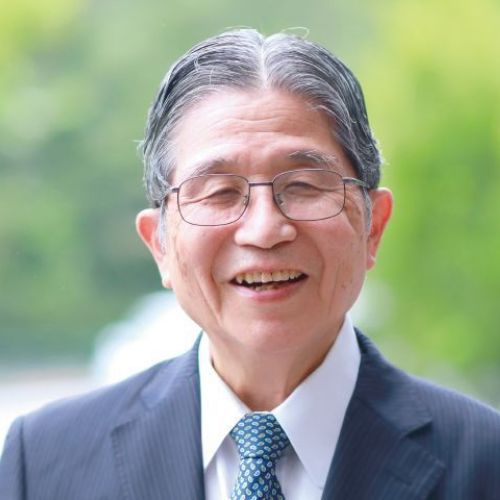Even after more than three decades in Japan, what Prisca Molotsi teaches, from classrooms to live music houses, are things about her homeland, South Africa, and a greatly enriched humanity
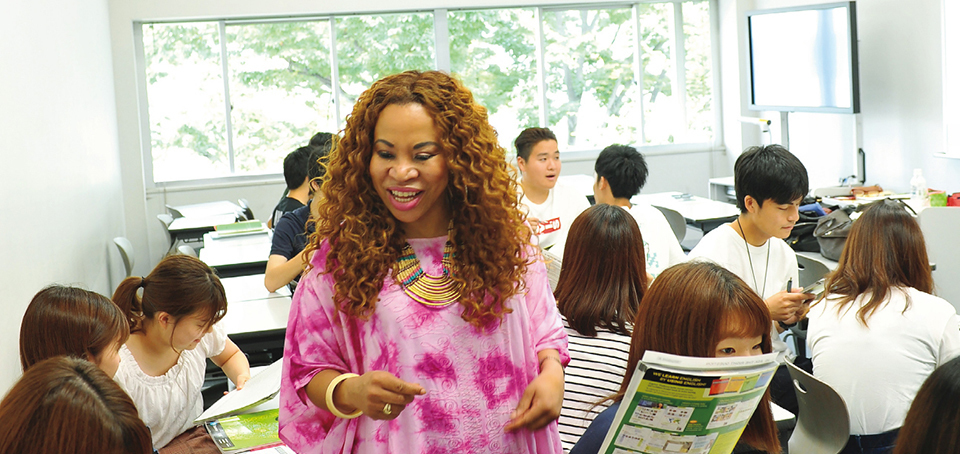
An English class at Aichi Shukutoku University. Molotsi’s voice comes from the heart, and her English lessons go beyond the textbook.
Prisca Molotsi's classroom, where her teaching focuses on conversation, abounds with energy, shared by the students who enjoy studying English with total dedication. As lecturer, she encourages them to express themselves amidst laughter.
In 1986, Molotsi first came to Japan on a UN fellowship, assigned to Nagoya, where she researched urban design. At the time, the number of South Africans in Nagoya was exceptionally small. She recalls that, with limited social contacts, “Life was so lonely that I thought I would return as soon as the half-year contract was over.” However, kindhearted Japanese people, together with the orderliness and safety of living in Japan, soon captivated her. Then came marriage to a Japanese, and before she realized it, 33 years had passed.
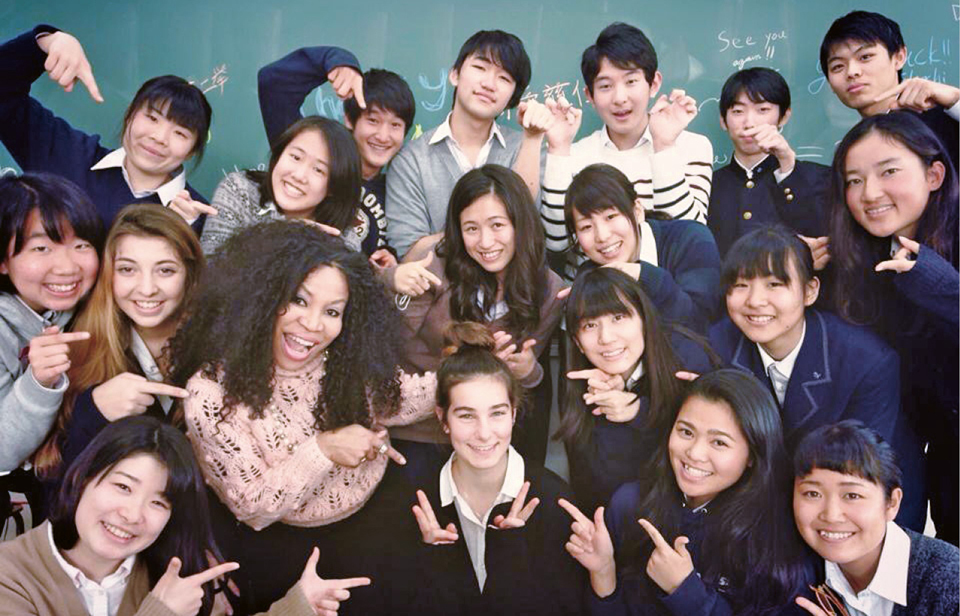
Posing with her high school students, Molotsi says, “Japanese high school students have so much energy. Their intense yearning to express themselves in English makes it a pleasure to teach them.”
Now, when she hears someone ask, “How do you, as a person from a distant country, feel about Japan?” She responds with a smile, “So thoroughly have I melted into Japan that I find it difficult to answer.” In fact, her favorite foods are kishimen noodles and miso soup made with wakame (seaweed), and she has acquired a black belt in karate, learned ikebana and tea ceremony, and likes Japan more than anybody else around her.
Currently she teaches English at colleges and high schools in Nagoya, and gives lectures on South Africa. In Japan, not everybody realizes the tremendous variety of culture and nature in all the different countries. She finds ways to draw connections between Japan and remote Africa by mentioning the history and culture of her homeland, South Africa.
In addition to her teaching, her dynamic expressiveness as a jazz singer can be heard at hotels and other live music venues. By the age of 14, her singing was already good enough to be recorded onto an album presented to the President of Zambia.
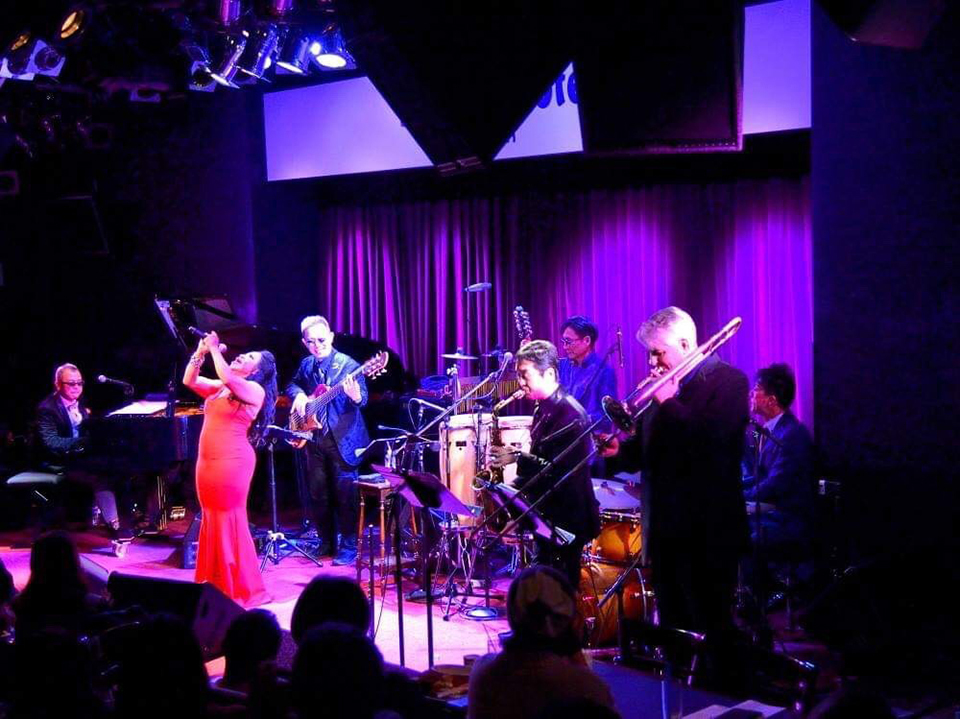
“At live performances, I sing at least one song from South Africa, ”Molotsi says. This song is peppered with click sounds typical of the tribal languages of South Africa-totally unique. “Never having heard these sounds before, Japanese audiences are astonished and delighted.”She is amazed that, even without understanding the lyrics, people can be moved to tears by her singing. “Whenever I feel that deep emotional connection, I feel ecstatic!”
Molotsi is often asked, “Between teaching and singing, which one is your real job?” In fact, the idea that she must choose one or the other seems nonsensical to her.
Raised in an open-minded home, her sense of values grew wide. Whether teaching or performing in front of a live audience, she thus seeks to communicate not only about English language and South African living, but more amazing things beyond. Even during class on the day of our visit, she made a fervent appeal to her students, saying “I want you to know even more about the world, and to have a variety of experiences that broadens your horizons. I know there will be disappointments. But we should keep rising to the challenge every time: the spirit of Never Give Up!”
She also mentions e-mails, sent from former students, telling her that, “During tough times, your words were a source of strength.” Her passionate feelings are expanding the future of Japanese youth.
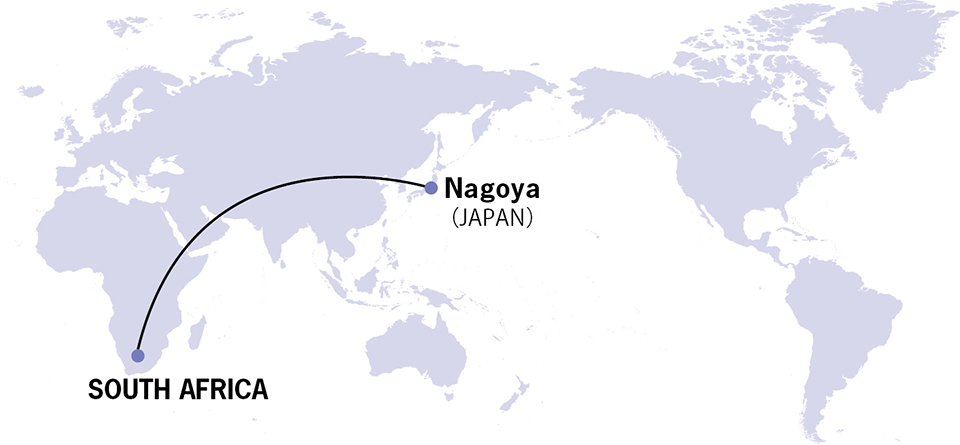
Prisca Molotsi
Originally from South Africa, she came to Japan in 1986 on a UN fellowship. While lecturing on English and South Africa, she is also active as a professional singer. Her singing talents were showcased at a concert event marking the centenary of Nelson Mandela's birth.

























